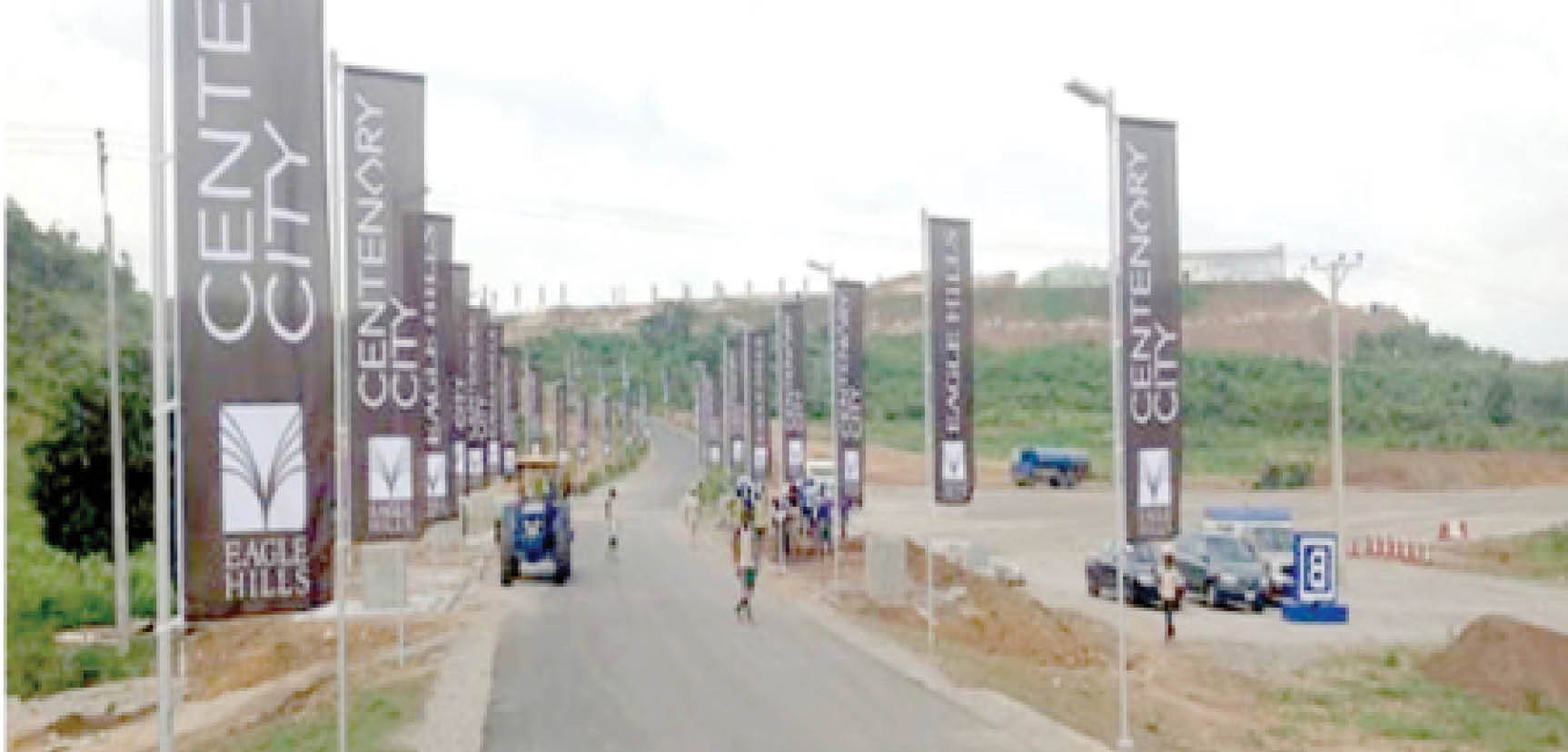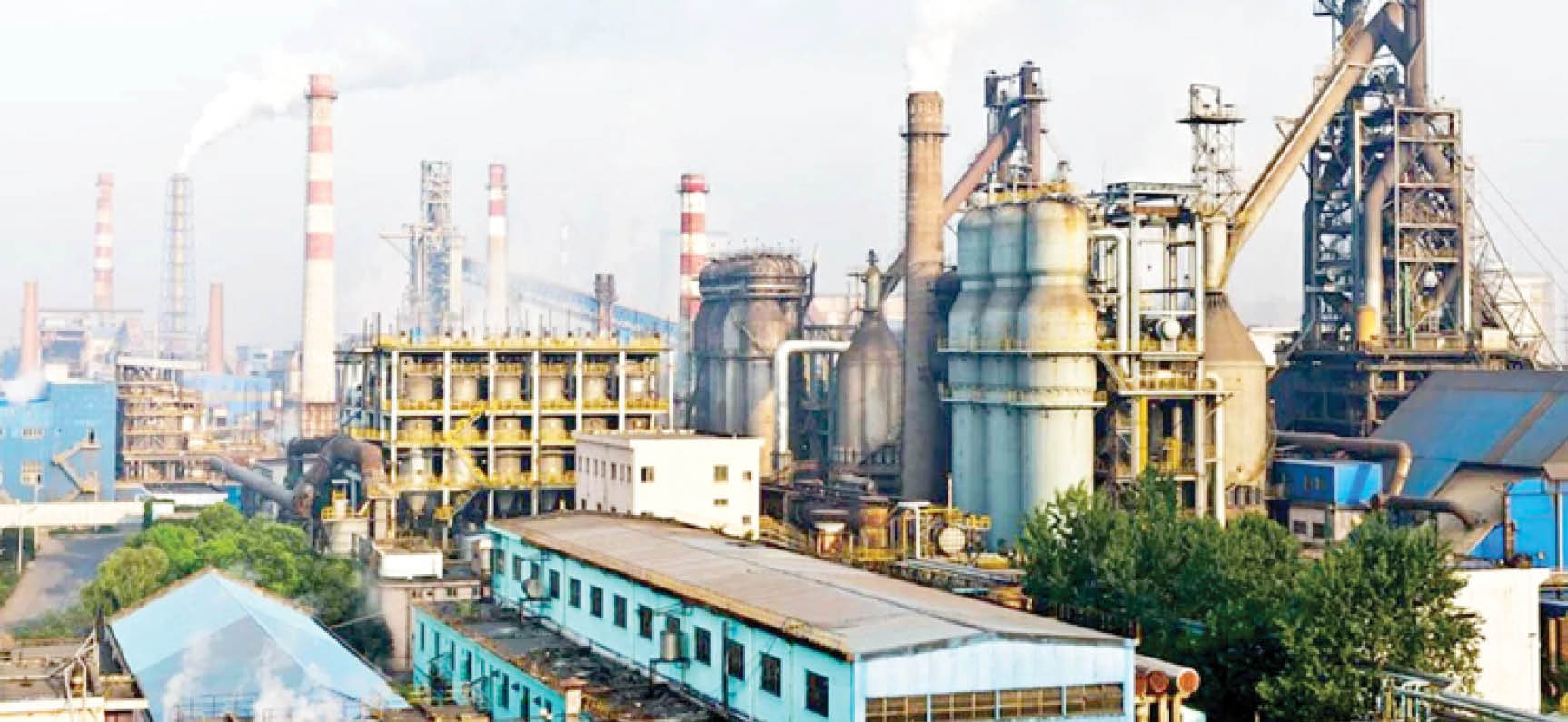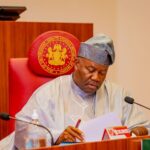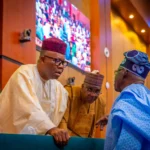Since its inauguration on June 13, 2023, the 10th National Assembly has initiated multiple probes targeting financial irregularities within various government ministries, departments, and agencies. These probes have been cited by many lawmakers as a response to critics that had labelled the 10th Assembly as a rubber-stamp parliament. This article chronicles the major investigations that remain either unresolved or abandoned by different committees in both the Senate and the House of Representatives.
$5.79bn Mambila Hydroelectric Power Project
On July 4, 2024, the Senate mandated its committees on appropriation, power, and finance to investigate the entire Mambila Hydroelectric Power Project (MHEPP) from 1999 to date. This directive followed a motion sponsored by Senator Manu Haruna (Taraba Central) and co-sponsored by 28 other senators, including former Senate President Ahmad Lawan and former Governor of Gombe State, Senator Danjuma Goje.
The Mambila Hydroelectric Power Project, which was supposed to be a landmark energy initiative, has been marred by controversies and delays for years. Despite being initiated over two decades ago, the project has seen little progress, raising concerns about mismanagement and corruption. Thus, the Senate’s investigation is believed to be aimed at unearthing the reasons behind these delays and the potential misappropriation of funds allocated to the project over the years.
While the probe continues, the Senate also appealed to President Bola Ahmed Tinubu to prioritise the project as a key “legacy project” for his administration, reflecting its strategic importance for the nation’s energy sector. However, since the Senate’s recess, little progress has been made, with the expectation that the matter will be revisited when lawmakers resume on September 17.
- How renewed B/Haram attacks killed 122 in Yobe, Borno
- Insecurity and the food crisis in northern Nigeria
Ajaokuta Steel Company probe
Another significant investigation is focused on the alleged corruption involving billions of naira at the Ajaokuta Steel Company Limited in Kogi State. The Senate is examining the N4.2 billion appropriated in the 2024 budget as personnel costs for unverifiable workers at the moribund steel company. The Ajaokuta Steel Company, once envisioned as the cornerstone of Nigeria’s industrial development, has become synonymous with government inefficiency and corruption.
An ad hoc committee has been tasked with probing corruption and inefficiency at the company and the National Iron Ore Mining Company (NIOMCO) from 2002 to 2024. The Deputy Chairman of the committee, Senator Natasha Akpoti-Uduaghan (PDP, Kogi Central), is a known advocate for revitalising the steel sector, having previously raised concerns about the mismanagement of these vital assets.

Earlier in February 2024, the Senate had resolved to probe the affairs of Ajaokuta Steel Company Limited and the National Ore Mining Company in Kogi State from 2008. The red chamber said it would establish why the payment of $496 million was allegedly made to Mr. Pramod Mittal, the Chairman of the Global Infrastructure Holdings Limited, by the federal government in September 2022 as a settlement over contractual disputes. The payment has been controversial, with many questioning the rationale behind such a significant sum being handed over without tangible progress on ground.
The Senate’s resolution to investigate the circumstances that led to the re-concession of NIOMCO also stems from the fact that the initial concession agreement was formally terminated by the Yar’adua administration, with a positive review by the International Chamber of Commerce in London. Despite the formation of an ad hoc committee chaired by Senator Adeniyi Ayodele Adegbonmire (SAN), with many senators as members, the two committees are yet to report back to the committee of the whole.
Oil sector probe (economic sabotage)
The Senate has also launched an investigation into the petroleum industry to identify economic saboteurs who have hindered the sector over the past decade. The 15-member ad hoc committee, chaired by Senate Leader Opeyemi Bamidele (APC, Ekiti Central), is probing the billions of dollars spent on turnaround maintenance of refineries in the last ten years. The oil sector, which has long been the backbone of Nigeria’s economy, has been plagued by inefficiency, corruption, and mismanagement, leading to severe economic repercussions.
This probe is particularly significant as the petroleum sector is critical to the nation’s economy, and the inability of the country’s refineries to function optimally has led to a reliance on imported petroleum products, with devastating effects on the economy. The committee’s investigation is expected to expose the root causes of these challenges and recommend actionable solutions.
A public hearing is scheduled for September 10-12, 2024, with visits planned to the Warri, Kaduna, and Port Harcourt refineries. These refineries have been under scrutiny for years due to their inability to operate at full capacity despite the huge sums of money allocated for their maintenance.
The House of Representatives is also investigating anomalies in the downstream and midstream sectors of the petroleum industry. This dual-chamber investigation underscores the importance of addressing the challenges in the oil sector, which is vital for the country’s economic stability and growth.
N30trn Ways and Means probe
An ad hoc Senate committee, led by Senator Isah Jibrin (Kogi East), is investigating the N30 trillion Ways and Means advances obtained by the Buhari administration from the Central Bank of Nigeria (CBN). The Ways and Means advances are a mechanism by which the government borrows short-term funds from the central bank to cover revenue shortfalls, but the scale of the borrowing under the Buhari administration has raised red flags.
The panel is tasked with probing how the N30 trillion Ways and Means advance was obtained and how it was expended by the Buhari administration. The unprecedented scale of this borrowing, which has significantly increased the nation’s debt burden, has sparked concerns about fiscal irresponsibility and the potential long-term impact on Nigeria’s economy.
$18.5bn Abuja Centenary City Project
The Senate has also established an ad hoc committee, chaired by Deputy Senate President Barau I. Jibrin, to investigate the stalled Abuja Centenary City Project. This project, initiated in 2014 through a public-private partnership, aimed to develop a modern city in the mould of Dubai, featuring state-of-the-art infrastructure and facilities.
The original estimated investment for the project stood at $18.5 billion as of 2014, but a decade later, the project remains incomplete, with little to show for the enormous financial commitments made. The Senate’s investigation is aimed at identifying the factors that have impeded the project’s completion, including possible mismanagement and corruption.
The committee was tasked with reviewing the original public-private partnership agreement and recommending necessary amendments to ensure the project’s completion. The investigation is still pending, but its outcomes could have significant implications for future public-private partnerships in Nigeria.
Dangote, BUA, INEC, and 110 other probe
The House Public Accounts Committee (PAC), headed by Rep. Bamidele Salam, is investigating 113 federal agencies, institutions, and private companies, including the Dangote Group, BUA, and INEC. These entities were summoned between July 30 and August 8, 2024, over issues such as revenue infractions, non-remittance of fees, and non-compliance with financial laws.
The PAC’s mandate is rooted in the Constitutional responsibility of the House to ensure accountability in the management of public funds. The investigation into these entities is crucial as it involves both public and private sector players, highlighting the pervasive nature of financial mismanagement in the country.
However, findings from these investigations are yet to be reported, and the lack of updates has raised concerns about the effectiveness of the PAC’s oversight functions. The outcomes of this probe could set a precedent for how the National Assembly handles cases of financial infractions in the future.
Police Recruitment Probe
The House Committee on Police Affairs, led by Rep. Abubakar Makki Yalleman, is probing the ongoing dispute between the Police Service Commission (PSC) and the Inspector General of Police (IGP) over constable recruitment into the Nigeria Police Force (NPF). This dispute, which has been lingering for years, has significantly affected the recruitment process, leading to a shortage of personnel in the NPF.
Following a resolution on a motion by Rep. Mitema Obordo in July, the committee was given four weeks to report back, but the investigation remains uncompleted due to the lawmakers’ recess. The prolonged nature of this dispute has raised questions about the efficiency of the institutions involved and the impact on national security.
Observers said the committee’s investigation is crucial to resolving the impasse between the PSC and the IGP, as it could lead to reforms in the recruitment process and enhance the capacity of the Nigeria Police Force to maintain law and order.
N2trn Agricultural Intervention Funds Probe
The House Committees on Nutrition and Food Security, Agricultural Production and Services, Agricultural Colleges and Institutions, and Finance are investigating the alleged misuse of over N2 trillion in agricultural funding disbursed by the CBN through its Anchor Borrowers’ Scheme. This investigation, initiated by a motion from Rep. Chike Okafor, is yet to be concluded.
The Anchor Borrowers’ Scheme, which was designed to boost agricultural production by providing low-interest loans to farmers, has faced significant challenges in implementation. The investigation by these committees is crucial as it seeks to address the inefficiencies in the management of agricultural funds and ensure that future interventions are more effective in achieving their intended goals.
N1.5bn Women Affairs Ministry Probe
The House Committee on Women Affairs, led by Rep. Kafilat Ogbara, is investigating the Minister of Women Affairs, Uju Kennedy-Ohaneye, over the alleged non-payment of N1.5billion to contractors despite the funds being released to the ministry. The allegations also include questionable expenditures such as N45 million for a New Year party, N20 million for sanitary pads, and N1.5million for vehicle fuel.
The committee’s investigation has led to the suspension of all 2024 contract award processes by the ministry until the funds’ whereabouts are established. This investigation highlights the need for greater transparency and accountability in the management of public funds, particularly in ministries that play a crucial role in addressing social issues.
WAEC Probe
The House Committee on Basic Education and Examination Bodies, led by Rep. Oboku Oforji, is investigating the Nigerian Office of the West African Examination Council (WAEC) over its Internally Generated Revenue (IGR) from 2018 to 2023. The investigation also extends to WAEC’s investment in Megatons W.A. Limited, a security and confidential documents printing company that went into liquidation after receiving a significant investment from WAEC.

 Join Daily Trust WhatsApp Community For Quick Access To News and Happenings Around You.
Join Daily Trust WhatsApp Community For Quick Access To News and Happenings Around You.


